Cashew butter has this unique nutty flavor that melts in your mouth. People who love cashews find this butter worth every bite.
You can spread cashew butter on your toast and eat. Or, if you want to try something different, use it as a topping on your baked sweet potatoes.
However, what if you have a cashew allergy and can’t afford to enjoy this fantastic delight? You don’t have to deprive yourself of all the goodness this butter offers.
Courtesy of many cashew butter substitutes such as almond butter, peanut butter, walnut butter, and sunflower butter, you can enjoy all the nutrients and taste this product offers.
Continue reading for more facts about each substitute.
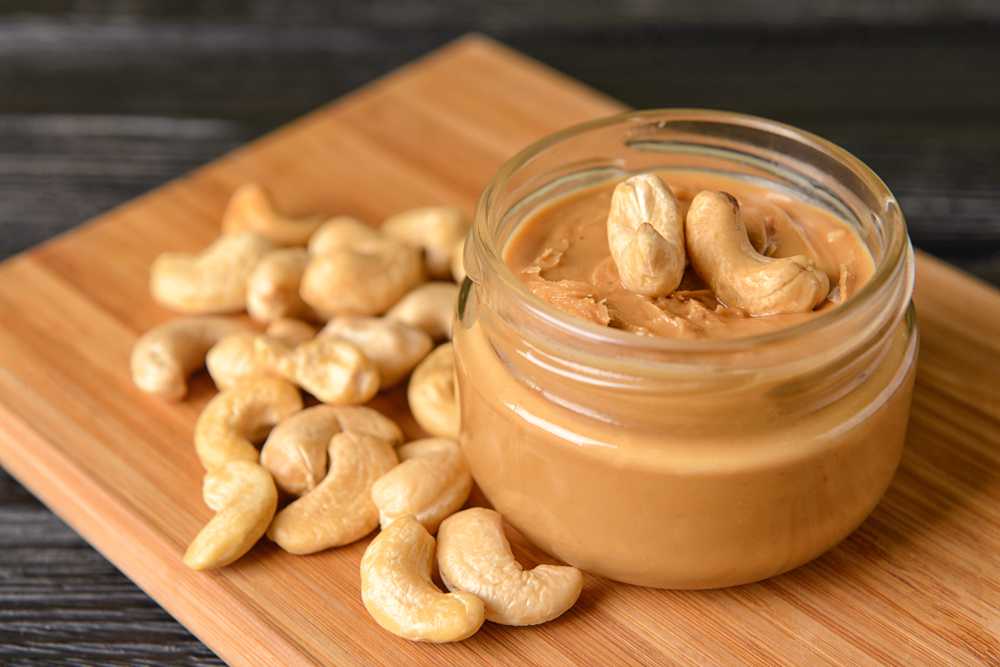
Table of Contents
7 Best Substitutes for Cashew Butter
Do you know that cashew butter consists of many amazing nutrients, such as zinc, phosphorus, and magnesium? Besides, it contains some healthy ingredients, essential for your metabolism and bone development.
Lucky for you, you can also experience all these benefits in the below-mentioned substitutes. So explore each to know more.
1. Almond Butter
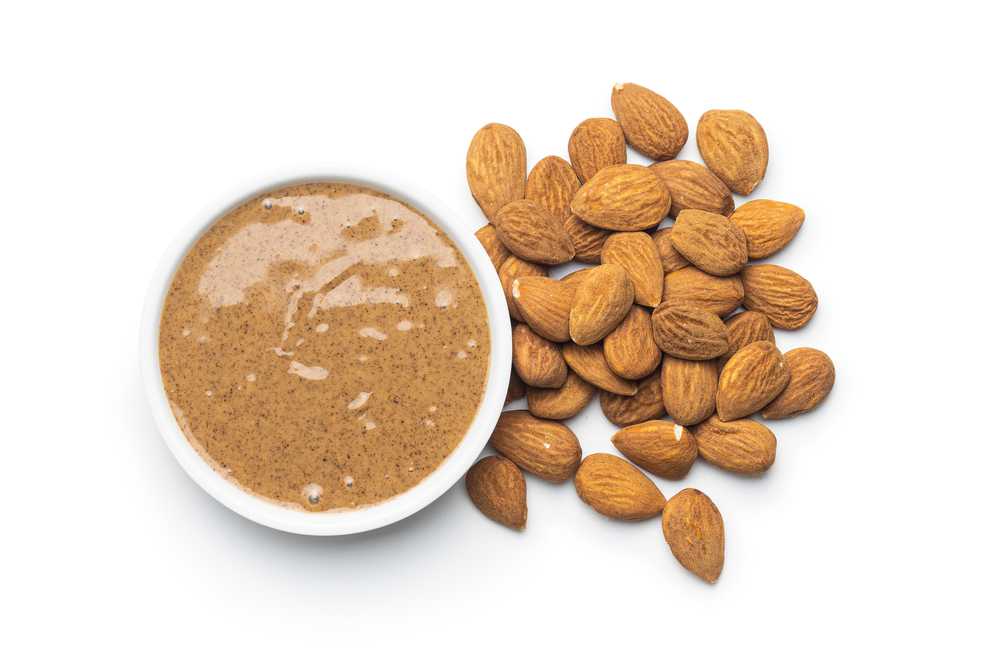
If you suffer from peanut allergy but are looking for a nutty spread, almond butter may strike your fancy. Made with grounded and roasted almonds, this rich-in-flavor paste can be used in sandwiches and savory and sweet recipes.
What’s more, you can also use almond butter as a dip for your vegetables and fruits.
Unlike cashew butter, this substitute is comparatively high in calories. However, a single spoon of this butter consists of loads of minerals, vitamins, and antioxidants, all useful for your health.
2. Peanut Butter
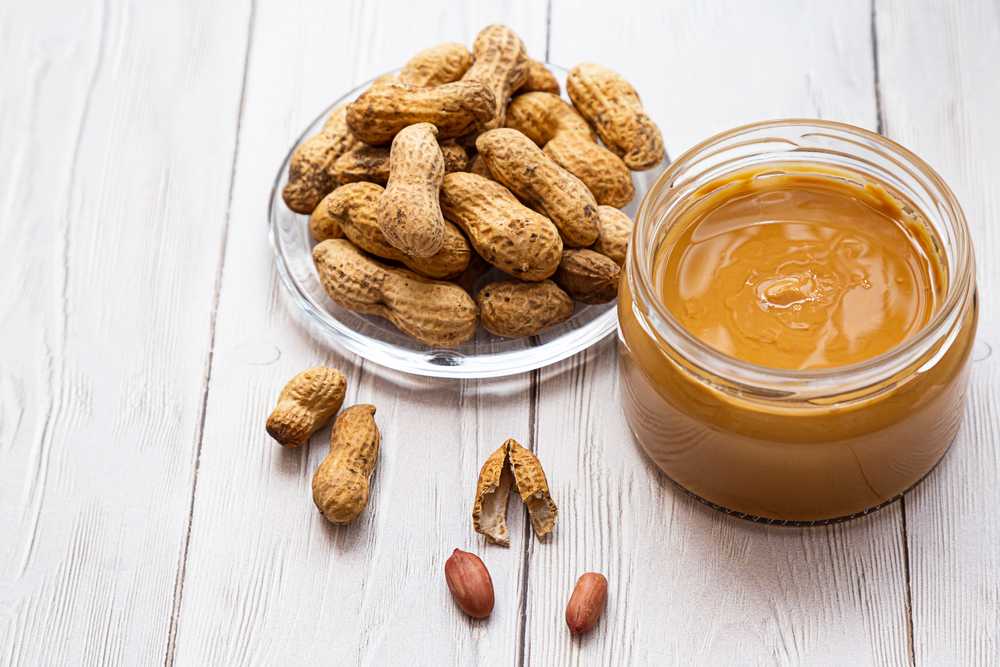
This is one of the most versatile butter variants available in the market. Peanut butter can taste good with anything and is loved by children and adults.
Cashew butter is slightly different from peanut butter because of the varying ingredients used. But peanut butter has a special mild undertone that reminds you of cashew butter any day.
Using peanut butter over cashew butter would work perfectly fine if you want to give your recipe a nutty flavor. Besides, peanut butter is also rich in vitamins and nutrients, including vitamins B, E, and potassium.
Here’s another fact that might convince you to go for this substitute. Peanut butter is readily available and might already be present in your pantry. Cashew and almond butter are sometimes hard to find.
Avoid using this butter if you suffer from a peanut allergy. This is its major downside that can lead to severe consequences.
3. Sunflower Butter
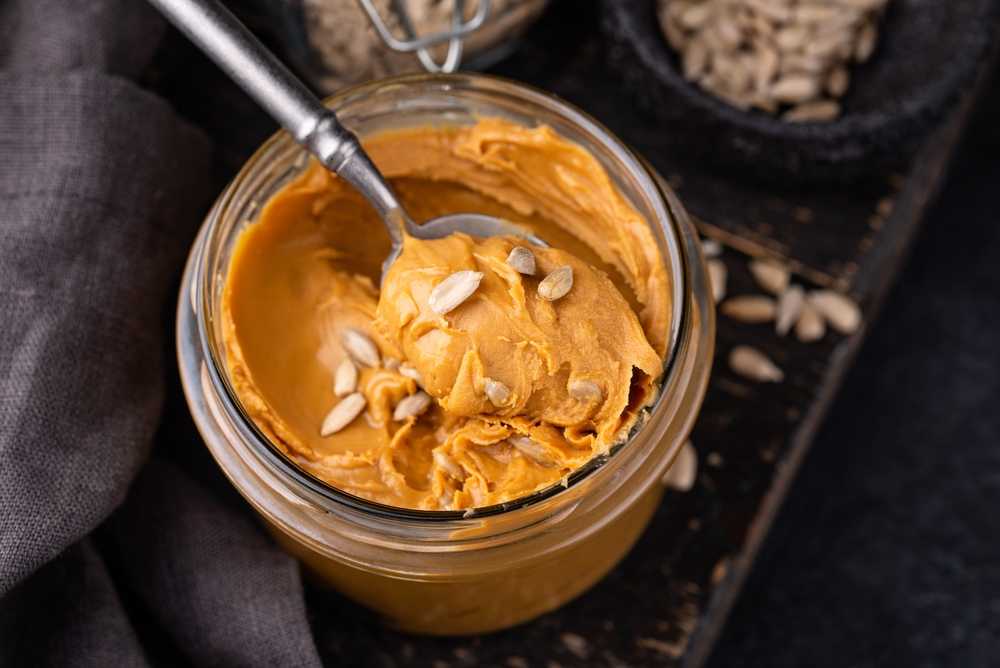
Do you crave a creamy and nutty alternative to cashew butter? In that case, the sunflower butter might be worth trying.
This product contains loads of sunflower seeds, minerals, and vitamins such as copper, selenium, and Vitamin E. In addition, it has low-fat content and is much healthier than cashew butter.
Sunflower butter can replace cashew butter in both savory and sweet recipes. It adds just the right amount of nutty flavor, enhancing the final flavor of your dish.
4. Soy Nut Butter
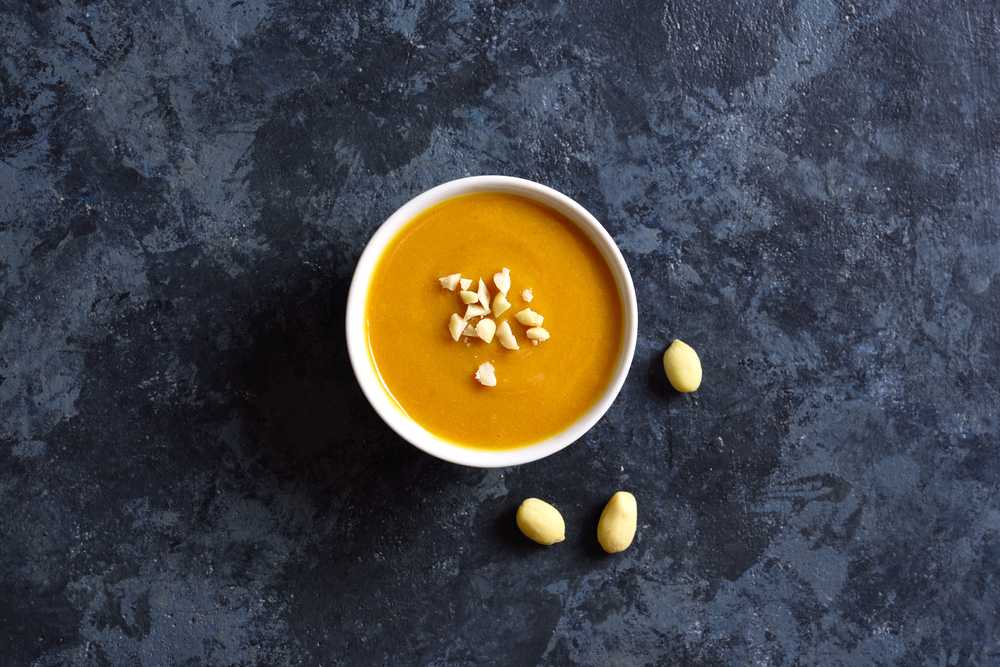
Soy nut butter is not as popular as other substitutes mentioned. However, it can conveniently replace cashew butter, giving you mouthwatering results every time.
This butter combines salt, oil, and roasted soybeans. For added flavor, you may also find other ingredients, such as palm oil and sugar.
Soy nut butter has a creamy and thick texture. That said, many people find it bland at times. If you do, too, add in some amount of jam to enhance the resultant taste.
This butter also impresses with its nutritional value. It contains healthy fats, satisfactory unsaturated fats, and adequate calories.
Soy nut butter also has some grams of proteins and loads of iron and Calcium.
This butter option is ideal for people with nut allergies. The only downside is that soy nut butter isn’t very easy to find.
In fact, it may not be available in small grocery stores, so you might have to do lots of searching before finding the best one.
5. Walnut Butter
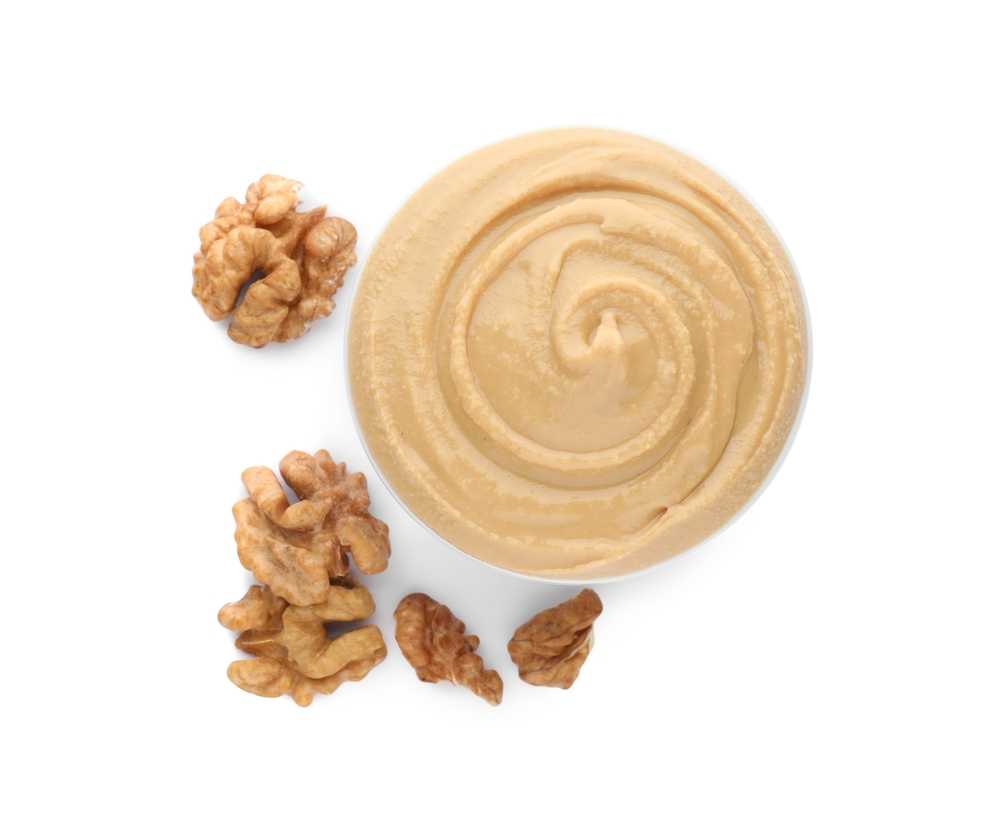
Do you love the taste of walnuts? If yes, try using walnut butter instead of cashew butter. It is also an ideal option for people with cashew allergies.
When it comes to texture, both kinds of butter are very similar. But since walnuts are sweeter than cashews, ensure to reduce the sugar you usually use in your recipe.
Additionally, you may find walnut butter relatively thin in consistency. So, if you are using it for baking some cookies, adjust your oven’s temperature and the baking time.
6. Macadamia Nut butter
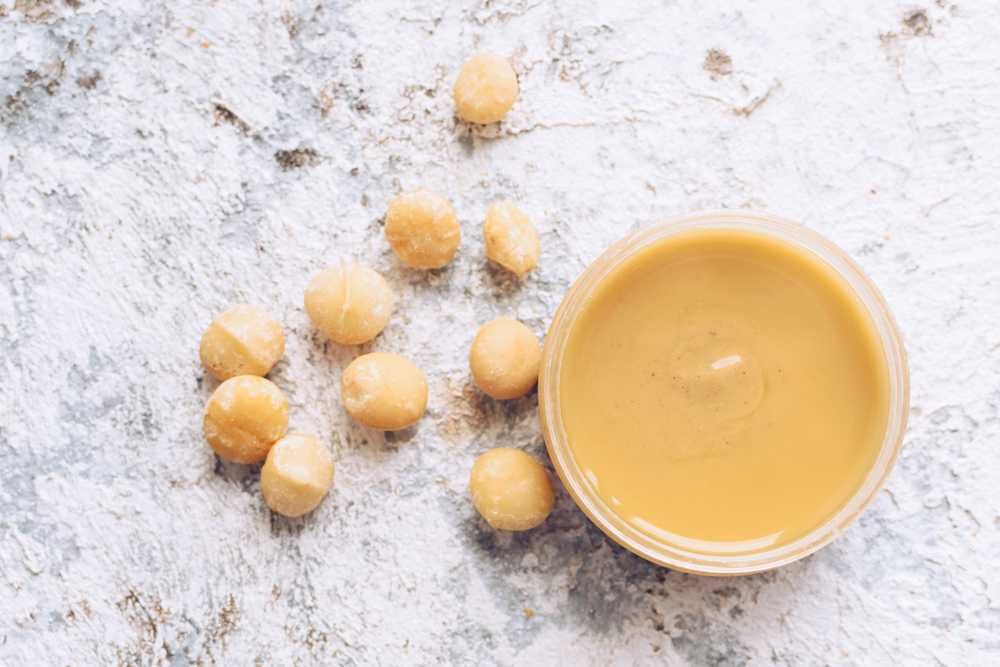
This one has a subtle flavor profile and is the closest to walnut butter in this regard. The neutral flavor with a unique hint of nuttiness takes you on a delicious taste journey.
The butter has a buttery and rich flavor. You can spread it on your toast, and if you fancy decadent cupcakes, this butter can be used as a good filling.
In addition, it is an excellent source of Calcium, making it helpful for your bones. However, macadamia nut butter is low in proteins and high in fat, meaning you should be careful when adding it to your recipes.
7. Hazelnut Butter
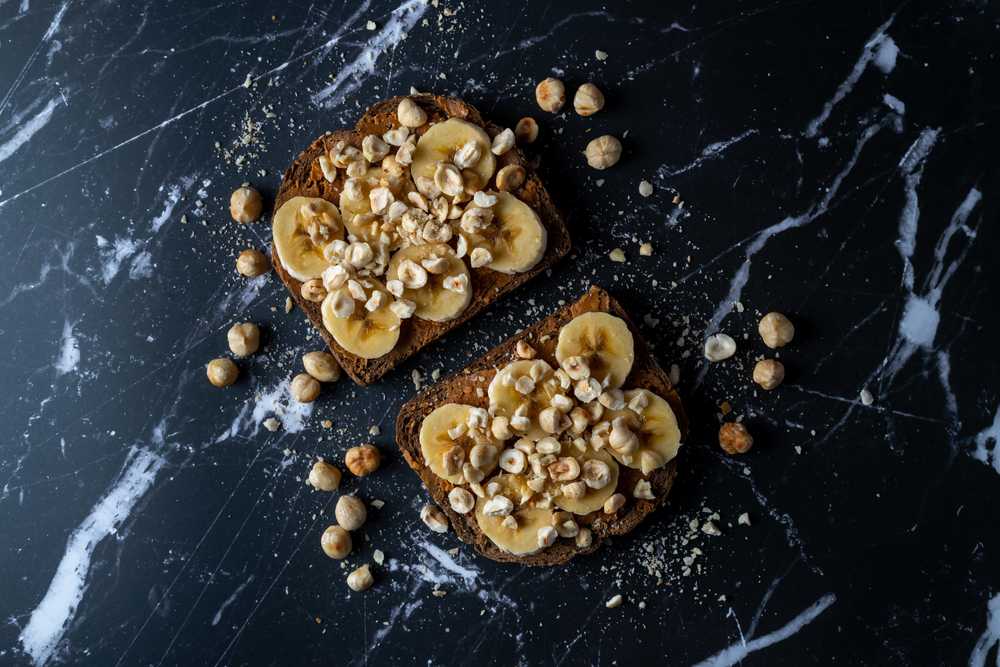
Made with blended and crushed hazelnuts, the hazelnut butter is a rich and divine food spread in every way. This butter is commonly enjoyed in European cuisines and is a primary ingredient in most chocolate spreads sold worldwide.
When it comes to its nutrients, hazelnut butter contains the same amount of minerals and vitamins as peanut butter. You may also find a similar amount of fats and calories in both kinds of butter.
However, hazelnut butter contains more Vitamin E and less saturated fats. It also has a low protein content.
So, can you use this butter in place of cashew butter? Yes, any day, and most people may never know.
Final Takeaway
If you are a fan of cashew butter, you may prefer adding it to every recipe you cook at home. However, since it is rarely available in stores and most people are allergic to cashews, you may find the above options as their perfect substitutes.
So, try them in your food and let us know how it goes.
Tahini was also mentioned as a substitute in a recipe...